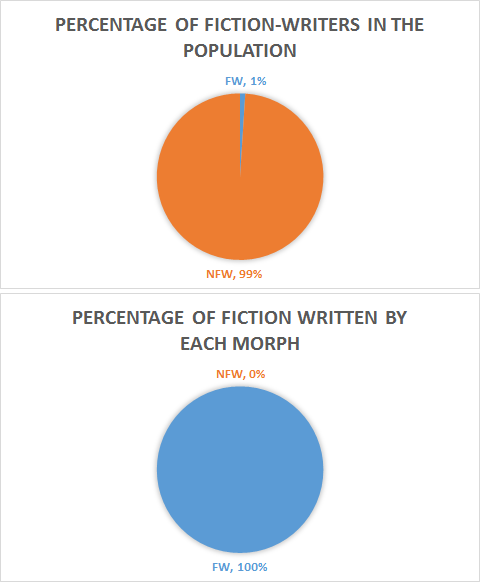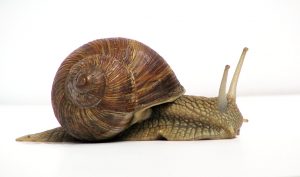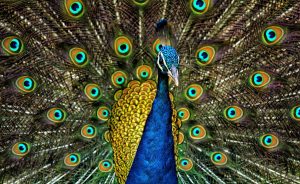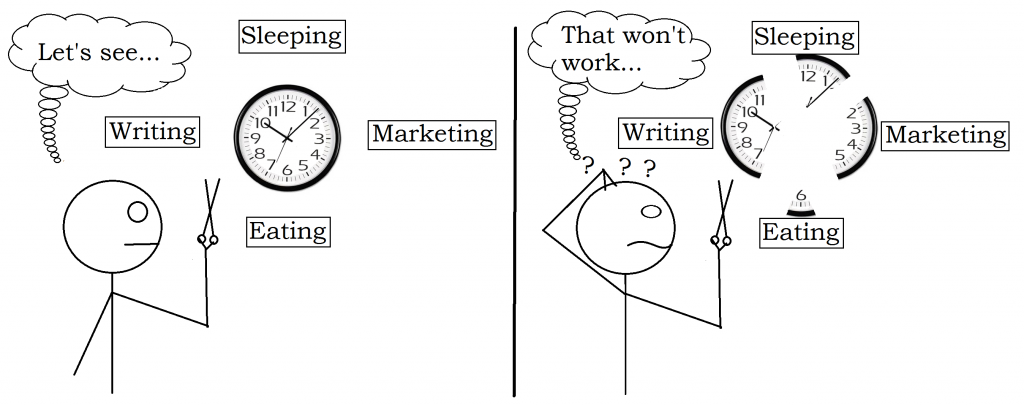Are you more creative when sleepy? Is that the best time for writing rough drafts?
Some research suggests people may perform slightly better on “insight”-type tasks when they’re tired. Writing that first draft of your story might be an insight-type task. Perhaps, when fatigue sets in, you’re more willing to take a chance, to perform a mental leap, to connect disparate thoughts in a novel way.

This study, by Associate Professor Mareike Wieth of Albion College, examined the performance of over 400 students on both analytic and insight tasks. Analytic tasks were straightforward math and logic problems. Insight tasks were problems that seemed, at first, to lack sufficient information, but required a flash of intuitive thought to solve.
According to this article in The Atlantic, the students performed better on analytic tasks at their optimum time of day when properly rested. No surprise there.
However, in the insight tasks, they did 20% better at their non-optimal time of day.
As I understand it, the subjects for the study were college students, not a random sample of people. Also, the insight tasks did not include writing first drafts of fictional stories. I don’t want to infer too much from this study. As all scientists conclude after every study, “more research is required.”
But you’re not interested in research. You’re interested in becoming a better writer, the best writer you can be. When it comes to writing while tired, I suspect your mileage may vary.
It might be worth a few experiments. You could stay up past your normal bedtime and write some first drafts then. Or you could wake up early and scribble out a first draft before starting your morning routine.
Here I’ll add a cautionary note. Suppose experimentation reveals you do write better when tired. There is a long list of physiological effects of sleep deprivation, including depression, obesity, and increased risk of diabetes. Writing while fatigued is one thing, but be sure to get enough sleep.
Maybe you’ll find a different way to take advantage of those creative sparks you get while exhausted. Rather than sitting hunched over a keyboard, all you need is a notepad to jot down the insights as they flash by. I’ve blogged before about the tendency for a writer’s mind to solve problems while engaged in other activities, particularly mundane tasks. The notepad technique works then, too.
Well, <yawn> it’s getting late. It’s first-draft-writing time for—
Poseidon’s Scribe


 Sitting at your computer, you produce your first work product of the day. (What’s the product? I don’t know; we’re talking about your current day job.) You e-mail it to your boss and wait. A few hours later, your boss e-mails you back to say the product didn’t suit her needs. She says she can’t accept it.
Sitting at your computer, you produce your first work product of the day. (What’s the product? I don’t know; we’re talking about your current day job.) You e-mail it to your boss and wait. A few hours later, your boss e-mails you back to say the product didn’t suit her needs. She says she can’t accept it.
 The process is usually not as bad as the way I’ve dramatized it in the accompanying image. Still, it’s a less efficient transmission method than mental telepathy would likely be.
The process is usually not as bad as the way I’ve dramatized it in the accompanying image. Still, it’s a less efficient transmission method than mental telepathy would likely be.
 Observations indicate the vast majority (greater than 99 percent) of adults within this species do not write fiction. The fiction-writing and non-fiction-writing fractions have not split off as separate species, and seem unlikely to do so. The distinction between the two is behavioral only, so we may define the fiction-writers as the FW Morph, and the others as the NFW Morph. Other sub-species terms such as breed, race, cultivar, ecotype, and strain are not as applicable as morph.
Observations indicate the vast majority (greater than 99 percent) of adults within this species do not write fiction. The fiction-writing and non-fiction-writing fractions have not split off as separate species, and seem unlikely to do so. The distinction between the two is behavioral only, so we may define the fiction-writers as the FW Morph, and the others as the NFW Morph. Other sub-species terms such as breed, race, cultivar, ecotype, and strain are not as applicable as morph. In an economic sense, it is fortunate that FWs are in the minority; otherwise they would have to pay NFWs to read their books, rather than the other way around.
In an economic sense, it is fortunate that FWs are in the minority; otherwise they would have to pay NFWs to read their books, rather than the other way around.




 Your mind is filled with raw feelings, and you have no room for anything else. You can’t be creative, not now. You can’t get in the mind of a character right now, can’t be bothered with rules of English, or with choosing the right words. Besides, your novel is a comedy, and you’re feeling the opposite of funny.
Your mind is filled with raw feelings, and you have no room for anything else. You can’t be creative, not now. You can’t get in the mind of a character right now, can’t be bothered with rules of English, or with choosing the right words. Besides, your novel is a comedy, and you’re feeling the opposite of funny. Well, you’d better make time for it. Somehow. Sure, you want to spend your precious time writing and you don’t like marketing. That’s why you became a writer. Still, it turns out that your preferences don’t really enter into this—you must do most of your own marketing (or pay someone to do it for you).
Well, you’d better make time for it. Somehow. Sure, you want to spend your precious time writing and you don’t like marketing. That’s why you became a writer. Still, it turns out that your preferences don’t really enter into this—you must do most of your own marketing (or pay someone to do it for you).